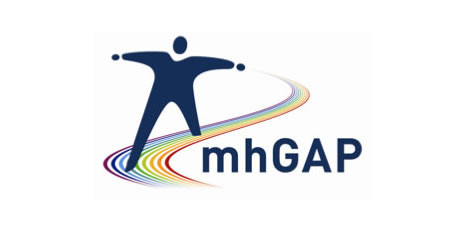Mental Health Gap Action (mhGAP) Virtual Course (2017)

Introduction
Mental health (MH) disorders constitute the single largest burden of diseases worldwide, making up approximately 14% of the global burden of disease. Four of the top five diseases accounting for the most life years lived with disability in persons aged 15-45 years are mental disorders (WHO, World Health Report, 2001). Yet, the treatment gap between those requiring care for mental health problems and those receiving it is large - only 25% in many low-income countries gain access to treatment (WHO, 2008).
From a public health perspective, the integration of mental health into primary health care (PHC) is a priority area at the global, regional and the Caribbean levels, and there are various mandates to support these efforts. In addition, WHO has developed the Mental Health Gap Action Programme Intervention Guide (mhGAP-IG), which aims to train primary health care (PHC) providers in the proper diagnosis and first-line management of MH problems. This is a tool for scaling up care for mental, neurological and substance use disorders (MNS) and to improve access to care for MH problems by integrating mental health into PHC. PHC is less stigmatizing, less discriminatory, closer to where people live and more respectful of basic human rights. Moreover, MH conditions are highly co-morbid with non-communicable diseases (NCDs) which present predominantly at the PHC level.
This course is based on the mhGAP integration guide version 2.0, which presents recommendations for the integrated management of priority conditions using protocols for clinical decision-making. The course uses PAHO’s Virtual Campus for Public Health (VCPH) platform, an innovative and effective training method, and builds on previous courses conducted in 2012-13, 2015 and 2016.
There is abundant feedback from General Practitioners, and other primary health care providers who participated in the previous courses, indicating that they are grateful to have been given the opportunity to acquire the necessary tools to recognize and treat patients they encounter in their practices, with various mental health disorders.
This upcoming course is being developed in collaboration with the PAHO/WHO Caribbean Sub-regional Program Coordination (SPC) office, Barbados, and aims to strengthen capacity for the integration of MH into PHC across the Caribbean.
Purpose of the Course
The purpose of this program is to enhance the capacity for early detection and management of mental health problems in Primary Health Care networks. This is to be done by improving the knowledge, skills and attitudes on the topic of mental health, as well as supporting actual practice change and integration to accommodate mental health into primary care practices.
General Objectives
- Improve individual clinicians’ proficiency in the diagnosis and management of MH problems;
-
Strengthen cooperation and collaboration between participating countries by:
- Developing a common language by using a common clinical tool - the mental health gap action program integration guide (mhGAP-IG) version 2.0;
- Exploring models of ongoing and future knowledge exchange and interactions about clinical realities between participating countries.
- Provide participants with the necessary tools to enable the integration of MH interventions into their clinical practice.
Method
The interactive training will combine virtual, self-directed, peer-to-peer and tutoring-based approaches; it will make use of didactic as well as experiential and practice-based methods. Learning activities on the various topics of study include programmed literature reviews, case studies, webex sessions, assignments and, quizzes.
General Calendar
22nd May to 30th October 2017.
Requirements and Workload
- Participants must be primary care practitioners from the English-speaking Caribbean Countries.
- The course lasts 22 weeks, with individual and activities, as well as orientation and support from the course tutors.
- Participants must receive written support from work supervisors of the institution to which they belong.
- Dedicate approximately eight to ten hours a week of work to the different synchronous and asynchronous activities, as well as turning in written assignments and course work in a timely manner.
- Provide facilities for computer and Internet access.
- While participation schedules are flexible, the overall agenda of the course activities must be met.
